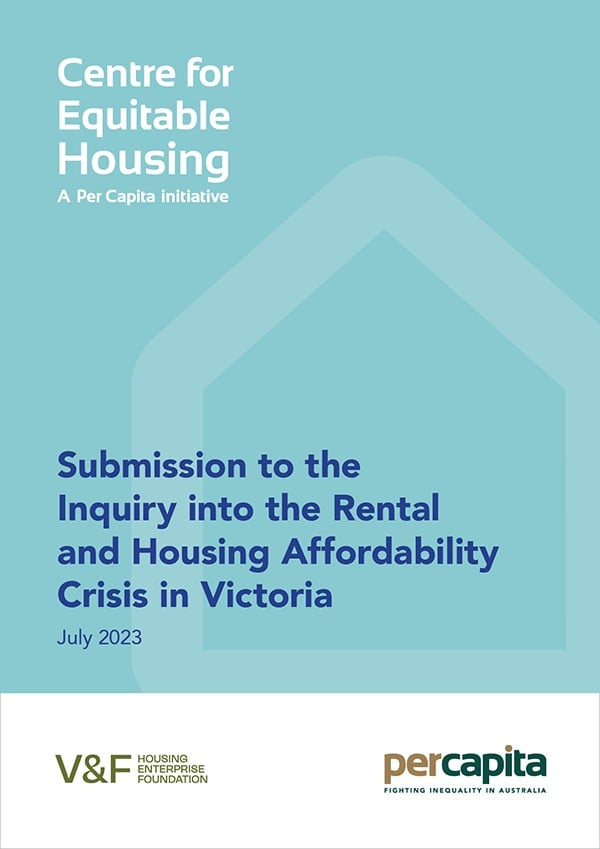Many of the causes of the rapid increase in rental prices and mortgage costs are national in origin. However, there are many areas in which the Victorian government can work with federal counterparts to address these national level policy issues or work on mitigating some of the effects at the state level.
What is most vital is ensuring that housing policy at the national and state level is not left to languish without a clear set of long-tern objectives and a pathway to those objectives. The Victorian Government has already proved itself a leader in several areas of housing policy reform, and we hope that our analysis and recommendations prove useful in taking this reform trajectory further.
Our submission discusses various aspects of the terms of reference. Specifically, we make recommendations in relation to the TORs in bold below:
- The factors leading to low availability and high costs of rental properties;
- Options to address insecurity, availability and affordability issues facing Victorian renters;
- The adequacy of regulation with regards to standards and conditions of rental housing;
- The adequacy of the rental system and its enforcement;
- The impact of short-stay accommodation;
- Barriers to first home ownership and the impact this has on rental stock;
- The experience of, and impacts of all of the above on, renters and property owners;
- Any other related matters.
Recommendations
Recommendation 1: That the Victorian Government work with the Federal Government, and other state/territory governments, to pursue a national housing policy framework bound by ambitious targets and objectives, as well as associated funding structures.
This should be founded on a national mission-based approach, including strategies for social housing, establishing a set of national of rental standards, a review of housing-related tax arrangements, and diversifying the rental housing sector.
Recommendation 2: That the Victorian Government recommit to the 1.75% levy on new multi-unit developments, and commit to building a further 48,000 social housing dwellings between now and 2036.
Recommendation 3: That the Victorian Government cooperate with future Federal Government efforts to alter the tax incentives that encourage speculative property investment in order to improve affordability of homes for owner-occupiers.
Recommendation 4: That the Victorian Government continue to work with the Build-To-Rent (BTR) sector, and expand the ground lease model to diversify the rental property market, establishing Victoria as the most favourable location for investment in private and community/cooperative BTR development.
Recommendation 5: Notwithstanding the findings of the Inclusionary Housing Pilot, the Government should establish a target of at least 15% of land release to be allocated to social rental homes, which should to remain social rental homes in perpetuity or with minimum terms of at least 25 years before units can be sold.
Recommendation 6: That the Victorian Government remove the option for a no-cause eviction at the end of the first fixed term lease from the Residential Tenancies Act.
Recommendation 7: That the Government implement appropriate rent stabilisation policies to prevent unreasonable increases in rental costs, learning from the experiences of the ACT and international examples such as Ireland, Canadian Provinces and Scotland, as territories with the most similar legal and regulatory frameworks.

